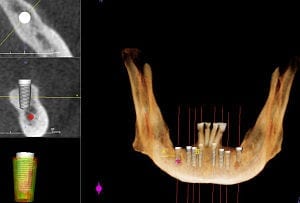
M.I.T. economist Erik Brynjolfsson explains how technology has affected economic growth and productivity, and how human workers can adapt
Fifteen years ago Deep Blue beat Garry Kasparov in a game of chess, marking the beginning of what Massachusetts Institute of Technology economist Erik Brynjolfsson calls the new machine age—an era driven by exponential growth in computing power. Lately, though, people have been feeling uneasy about the machine age. Pundits and experts seem to agree that the robots are definitely taking our jobs. At last week’s TED conference, Brynjolfsson argued that the new machine age is great for economic growth, but we still have to find a way to coexist with the machines. We asked him to expand on a few points.
You’ve written a lot about what you call the new machine age, which you argue is fundamentally different from previous industrial eras. What’s so different about it?
The first and second industrial revolutions were defined by these general-purpose technologies, the steam engine and, later, electricity. The new machine age is defined by digital technologies, and those have a lot of unusual characteristics. First, you can reproduce things at close to zero marginal cost with perfect quality and almost instant delivery—that’s something you can’t do with atoms. Second, computers are getting better faster than anything else—ever. That’s something we’re not used to dealing with, and it’s happening year over year, relentlessly. Third, you can remix or combine technologies in a way that doesn’t use them up, but that instead allows for even more combinations. That means we’re in no danger of running out of ideas. Put those all together, and I’m very optimistic about the future of economic growth and productivity growth. And the data bear that out.
You’ve also said that productivity has become “decoupled” from employment. Can you explain?
Throughout most of modern history, productivity and employment have grown side by side. But starting about 15 years ago they started becoming decoupled. Productivity continued to grow, even accelerate, but employment stagnated and even fell, as did median wages for the people who were still working. This was an important milestone, because most economists, including me, used to be of the mind-set that if you just keep increasing productivity, everything else kind of takes care of itself.
But there’s no economic law that says everyone has to benefit equally from increased productivity. It’s entirely possible that some people benefit a lot more than others or that some people are made worse off. And as it turns out, for the past 10 to 15 years it’s gone that way. The pie has gotten bigger but most of the increase in income has gone to less than 1 percent of the population. Those at the 50th percentile or lower have actually done worse in absolute terms.
There are a lot of causes for this—some of it has to do with offshoring, tax policy and so on—but those are minor players compared with the big story, which is the nature of technology. It’s simultaneously allowing us to grow faster and leading us to a very different allocation of those benefits.
The Latest Bing News on:
Robots Are Coming for Our Jobs
- Generative AI is speeding up human-like robot development. What that means for jobson May 7, 2024 at 5:00 pm
"Could pay for the robot in a year." In pharmaceutical research, generative AI can reduce costs, without cutting into human labor. "You don't save costs in our business by having less people. You ...
- The robots aren’t coming for your jobs – they’re already here taking them, starting with fast foodon April 25, 2024 at 7:58 pm
A major fast-food chain has replaced drive-through workers with artificial intelligence software and a video of a customer’s encounter with the new tech has gone viral.
- The robots aren’t coming for your jobs – they’re already here taking them, starting with fast foodon April 25, 2024 at 4:42 pm
Economists forecast millions of fast-food jobs will be lost in the coming five years as smart kiosks ... That’s a very scary proposition for our society.” There’s good reason for people ...
- Enter Robots: Are We Ready?on April 25, 2024 at 11:09 am
Humanoid robots will permeate the workplace and around the house, doing everything from housekeeping to gardening to shopping. Humanoid robots will soon be among us in our daily lives. How will we ...
- The robots are coming ... for your weddingon April 24, 2024 at 2:00 am
NEW YORK — After the vows, the champagne toasts, the filet mignon and the first dance between the bride and groom — after all the normal wedding stuff — came the cue. The cue for the abnormal wedding ...
- Walmart Canada says robots are coming to two Ontario warehouses, but jobs not at riskon April 11, 2024 at 5:00 pm
In a Calgary warehouse almost as big as eight football fields, an army of robots ... jobs. “We need the human element for oversight and from a safety perspective,” Kelly said. “What we want ...
- Walmart Canada says robots are coming to 2 Ontario warehouses, but jobs not at riskon April 11, 2024 at 5:00 pm
In a Calgary warehouse almost as big as eight football fields, an army of robots whir about ... would create 325 new jobs. “We need the human element for oversight and from a safety perspective,” ...
The Latest Google Headlines on:
Robots Are Coming for Our Jobs
[google_news title=”” keyword=”Robots Are Coming for Our Jobs” num_posts=”10″ blurb_length=”0″ show_thumb=”left”] [/vc_column_text]The Latest Bing News on:
Robots doing human jobs
- Chilling new AI robot designed to learn human behaviour in just 24 HOURS amid fears of cyborg’s could ‘take over’on April 28, 2024 at 7:36 am
A CHILLING new AI robot designed to mimic human behaviour has learnt difficult tasks in just 24 hours. The freaky futuristic cyborg, named Phoenix, was unveiled this week and is fast on its way to ...
- More than machines: Computer scientist prepares robots to improve human liveson April 23, 2024 at 5:00 pm
Robots, or virtual agents, are an excellent choice for jobs that would be dangerous ... in the exact same order. But a human with social intelligence can easily discern the difference. Teaching ...
- Robots can make jobs less meaningful for human colleagueson April 18, 2024 at 11:46 am
The long-term impact these sorts of sweeping changes will have on the job market going forward remains to be seen. One aspect of the conversation that is oft neglected, however, is how human workers .
- Robots can make jobs less meaningful for human colleagueson April 18, 2024 at 11:46 am
The long-term impact these sorts of sweeping changes will have on the job market going forward remains to be seen. One aspect of the conversation that is oft neglected, however, is how human ...
- Former Facebook exec says AI robots will soon complete household chores amid human replacement concernson April 9, 2024 at 11:56 am
You'll have a domestic helper robot that you can probably pay a thousand bucks a month for," he said during the "All-In" technology podcast. "I think it washes the dishes. I think it will do the ...
- Humanoid robots are doing some lifting in Amazon's warehouses. But is the human form the ideal shape for the task?on December 10, 2023 at 4:25 pm
Amazon's human workforce is getting to know their robot co-workers as the company ... human shape isn't always the ideal form for specific jobs — including moving boxes. "Humanoids aren't ...
The Latest Google Headlines on:
Robots doing human jobs
[google_news title=”” keyword=”robots doing human jobs” num_posts=”10″ blurb_length=”0″ show_thumb=”left”]










